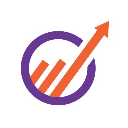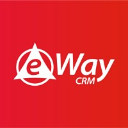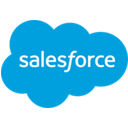Choose the Right Cloud CRM: Definition & 10 Software to Pick From
Choosing your CRM platform is an important decision your company should make to take steps to develop meaningful and long-lasting relationships with its existing and potential customers. Opting for a cloud CRM can offer countless more benefits than a traditional CRM - on premise. Here’s everything you need to know about a cloud-based CRM.
A cloud-based Customer Relationship Management (CRM) system, or eCRM, refers to an online CRM software system hosted in the Cloud on remote servers instead of a traditional CRM system installed locally on run-on servers within a company.
🔎Cloud-based CRM platforms enable simultaneous data access anytime, anywhere, and on any device (tablet, computer, or smartphone).
What Is a Cloud CRM?
A Cloud CRM (Customer Relationship Management) is a type of CRM system that is hosted on the cloud, meaning it is accessible via the internet rather than being installed on a local server or computer.
This allows businesses to manage their customer interactions, data, and relationships from any location with an internet connection.
Cloud CRM systems offer significant advantages in terms of:
- accessibility,
- flexibility,
- and scalability.
Cloud CRM VS On-Premise CRM: What’s the Difference?
As seen above, Cloud CRMs allow users to access their CRM from anywhere, facilitating real-time data availability and seamless collaboration. This model typically involves lower initial investments with subscription-based pricing, making it cost-efficient and easier to budget. Additionally, Cloud CRMs can be deployed quickly and come with robust security measures, although they may not always meet specific regulatory requirements.
🖥️ Conversely, On-Premise CRM systems are installed locally on a company's own servers, offering more control over the CRM environment, data security, and customization.
This setup often requires substantial upfront costs for hardware and software, along with ongoing expenses for maintenance and updates. Implementation time is longer due to the complexity of installation and customization processes. While On-Premise CRMs provide greater control and may better meet stringent security policies, they demand significant IT resources and expertise.
☝️ Ultimately, the choice between Cloud and On-Premise CRM depends on your specific needs, budget, and strategic priorities.
5 Top Features of a Cloud CRM
Cloud CRM systems operate by storing your customer’s information on remote servers maintained by the service provider. You and your collaborators can access this data via a web browser or a dedicated mobile app.
#1 Data Storage
All of your customer data, including:
- contact details,
- interaction history,
- and sales records,
is securely stored in the cloud. 🔐
This eliminates the need for on-site hardware and reduces the risk of data loss. Providers typically ensure data security through encryption, regular backups, and compliance with data protection regulations.
#2 Data Access
Your authorized personnel can access the CRM from any device with internet connectivity. This real-time accessibility ensures that sales teams, customer support, and marketing departments have up-to-date information at their fingertips.
🔎 This is particularly beneficial for remote work scenarios and for companies with multiple offices.
#3 Automation
Many Cloud CRM platforms include automation features that handle repetitive tasks such as:
- sending follow-up emails,
- scheduling appointments,
- and generating reports.
This automation boosts efficiency and allows teams to focus on more strategic activities.
👉Automation can also extend to marketing tasks, such as leading nurturing campaigns and social media posting.
#4 Integration Capabilities
Integration capabilities are also crucial, allowing cloud CRMs to easily integrate with other business tools like:
- email marketing platforms,
- social media,
- e-commerce systems,
- and accounting software.
This seamless integration ensures that all business processes are interconnected.
💡 For example, syncing CRM data with email marketing tools can enable personalized campaigns based on customer behavior, improving engagement and conversion rates.
#5 Analytics and Reporting
Cloud CRMs come equipped with robust analytics and reporting tools. These tools help businesses:
- track performance metrics,
- monitor sales pipelines,
- and gain insights into customer behavior.
Detailed reports and customizable dashboards allow businesses to make data-driven decisions.
The Main Benefits and Challenges of a Cloud CRM
8 Benefits of Using a Cloud CRM
Implementing a Cloud CRM offers numerous benefits that can significantly impact a business's efficiency and profitability:
#1 Cost-Efficiency
Unlike traditional CRM systems that require substantial investment in hardware and IT infrastructure, Cloud CRMs are typically subscription-based, reducing capital expenditure and operational costs.
There are no hidden costs for server maintenance or software updates, as these are handled by the provider. 💪
#2 Easy Accessibility
Cloud-based CRMs are accessible anytime, anywhere, and on Android, iOS, and Windows Phone devices. You also can synchronize your mobile activity to your desktop version for a more streamlined workflow.
👉Additionally, because cloud-based CRMs are deployed on the Cloud, you can monitor their functioning online and address any hiccups as they arise.
#3 Automatic Updates
The CRM provider handles software updates and maintenance, ensuring your system is always running the latest version with the newest features and security patches. This ensures that your CRM is up-to-date with the latest technological advancements without any downtime or additional costs.
#4 Data Storage
You can store all your data in a remote data center. Most of the host servers for cloud-based CRMs implement a higher level of security with top-of-the-line technology to safely monitor how your data is stored and regularly back it up to avoid accidental data loss.
#5 Easy Scalability
Scalability is built into cloud CRM solutions, allowing businesses to easily adjust resources to accommodate growth without significant downtime or costs. This seamless expansion capability supports business growth by adding new users and features as needed.
#6 Better Team Collaboration
Improved collaboration is facilitated by cloud CRMs, with real-time data sharing and centralized information enhancing team coordination and customer service. Teams can work together more efficiently, providing a unified approach to customer relationship management.
#7 Strong Security Protocols
Robust security measures, including encryption and regular backups, protect sensitive customer data are often integrated and play a huge part in having a safe cloud CRM. These advanced security protocols reduce the risk of data breaches and ensure compliance with industry regulations, safeguarding both business and customer interests.
#8 Better Customer Experience
Finally, cloud CRMs significantly enhance the customer experience by providing quick access to detailed customer histories. This capability allows for personalized and efficient service, improving customer satisfaction and loyalty. Higher customer retention rates and increased sales are achieved through better understanding and meeting customer needs.
#5 Challenges of Cloud CRMs
Despite the numerous benefits, cloud CRMs also present several challenges. 👇
#1 Data Security Risks
Data security concerns are paramount, as storing sensitive customer data in the cloud may raise issues regarding data breaches and compliance with regulations. Businesses must carefully assess cloud CRM providers' security measures and ensure compliance with industry standards to mitigate these risks.
#2 Internet Reliance
Internet dependency is another challenge, as reliance on a stable internet connection can be problematic in areas with poor connectivity. Potential disruptions in accessing CRM data during internet outages can affect business operations, making it crucial to have reliable internet infrastructure or backup solutions.
#3 Limited Customization
Customization limits can also be a concern, as while many cloud CRMs offer customization, there may be limits compared to on-premise solutions. Achieving the desired level of customization may require additional investment in custom development, increasing costs and time to implementation.
#4 Integration Challenges
Integration issues can arise when integrating cloud CRMs with existing systems and during data migration. This process can be complex and time-consuming, potentially leading to disruptions and additional costs.If you incorporate a CRM into your Business, you must plan and execute these integrations carefully to ensure seamless operation.
#5 Vendor Reliance
Vendor dependence is another challenge, as businesses rely on the CRM provider for maintenance and updates. Any changes in the provider's service level or business stability can pose risks. It is crucial for businesses to select reliable CRM providers and have contingency plans in place to mitigate potential service disruptions.
How Do You Choose the Right Cloud CRM for You and Your Team in 8 Criteria?
Choosing the right Cloud CRM software is crucial for optimizing your customer relationship management processes and enhancing business efficiency. ✅
Here are some key factors for you to consider:
#1 Ease of Use
Your Cloud CRM should simplify your daily operations rather than complicate them. It should offer an intuitive interface that minimizes the need for manual data entry and reduces the time spent on administrative tasks.
💡For example, a CRM that automates the creation of new customer files and pre-populates data fields can save significant time and reduce errors.
#2 Support for Strategy
The CRM should support your company’s strategy for nurturing leads and managing the sales pipeline. This includes providing tools for:
- segmenting your audience,
- personalizing communications,
- and tracking interactions throughout the customer journey.
An easy-to-navigate dashboard that displays key metrics and insights at a glance can help sales teams stay focused and aligned with business objectives.
#3 Automated Workflow
A good Cloud CRM should guide you through the sales process in real-time. It should include task management features that remind you of critical actions such as follow-up calls or emails. This ensures no opportunities are missed and helps maintain consistent customer engagement.
#4 Planning and Management
Having a clear overview of your daily tasks and customer interactions is vital. 🙏
The CRM should provide a snapshot of ongoing operations, helping you prioritize and manage your workload effectively. This can free up more time for strategic activities like prospecting and relationship building.
#5 Access to Data
Salespeople need immediate access to customer profiles and history during meetings.
A CRM that offers mobile access ensures that sales representatives can retrieve and update information on the go, enhancing their ability to provide personalized services.
#6 24/7 Availability
The CRM database must be accessible at all times. This ensures that sales teams can respond promptly to customer inquiries and update records in real-time, leading to better customer relationship management and higher satisfaction.
#7 Managerial Insights
Managers need an overview of the sales pipeline to effectively oversee their teams.
A CRM that provides detailed reports and dashboards enables managers to:
- monitor activities,
- track performance,
- and offer targeted coaching to their Salesforce.
#8 Performance Tracking
The CRM should facilitate the tracking of key metrics and the generation of reports. This helps in assessing the effectiveness of sales strategies and identifying areas for improvement.
🔎Real-time data visualization tools can make it easier to analyze trends and make informed decisions.
What’s The Best Cloud CRM? 10 Software to Compare
Choosing the right cloud-based CRM is one of your company’s most critical decisions to perfect your relationship with your customers. Here’s everything you need to know about the different platforms out here.
1 of 10
 Pipedrive |  Act! |  ClickUp |  EngageBay |  eWay-CRM |  Freshsales |  HubSpot CRM |  Maximizer |  Salesforce CPQ |  Zendesk |
|---|---|---|---|---|---|---|---|---|---|
| For companies with 1 to 5000 employees | For companies with 1 to 5000 employees | For all companies | For companies with more than 50 employees | For all companies | For all companies | For companies with more than 1 employees | For all companies | For all companies | For all companies |
| See software | See software | See software | See software | See software | See software | See software | See software | See software | See software |
| Learn more about Pipedrive | Learn more about Act! | Learn more about ClickUp | Learn more about EngageBay | Learn more about eWay-CRM | Learn more about Freshsales | Learn more about HubSpot CRM | Learn more about Maximizer | Learn more about Salesforce CPQ | Learn more about Zendesk |
1- Act!
Act! CRM is notorious for its ability to sort through complex customer and sales data sets to help your business engage with your customers through marketing automation.
You can choose a cloud-based, on-site, or hybrid installation to select the setup that meets your budget and needs. The cloud-based model is available as a SaaS on Android and iOS mobile devices.
Act! integrates customer data with marketing and sales tools in a singular platform so you can track your user experience at every step of the customer cycle.
As part of the Act! CRM solution, your company will benefit from:
- Personalized campaigns
- Workflow automation
- Real-time reporting
- Lead tracking
- Sales processing
- Interactive visual dashboards
To boost your customer engagement, Act! allows you to integrate with many software solutions, like QuickBooks, Zoom, Office 365, Microsoft Outlook, and more.
These integrations, coupled with its automation capabilities, allow your team to collaborate more harmoniously and perform high-priority tasks with a clear vision and direction.
Moreover, your team can create personalized landing pages and email templates to lower your marketing budgets and develop personalized outreach workflows for more transparent customer communication.

Act!
2- ClickUp
ClickUp is an all-in-one CRM solution designed to meet the needs of companies of all sizes in any industry.
With its scalable architecture and intuitive user interface (UI), ClickUp features numerous customizable features for your business to reach and exceed its goals. With ClickUp, your team can gain the project management maturity it needs to connect with its customers on a deeper level.
ClickUp is designed to build the perfect workflow via planning, tracking, and cross-departmental collaboration functionalities. Your company can create comprehensive marketing campaigns and work AGILE to streamline efficiency.
Some of the many benefits of ClickUp include the following:
- Multiple views: allows you to track your pipeline most efficiently from team to team
- Advanced customization: each part of the platform can be adjusted to match your team’s preferences and the project in question
- Streamlined communication: each user can communicate in real-time with the platform’s robust in-house and client-facing communication tools
- Whiteboards: brainstorm with your team visually to optimize creativity
- Time tracking: personal project management tools to keep users organized
- Advanced templates: use the platform’s vast library of CRM templates to better communicate with your clients and take your projects to the next level
- Integration: compatible with apps like Google Calendar, Front, Slack, and many more to centralize your work.
- ClickUp University: helps you learn everything you need to know about ClickUp’s CRM platform
ClickUp offers affordable pricing, a user-friendly mobile interface, and 24/7 customer service.

ClickUp
3- EngageBay
EngageBay is a cloud-based CRM system that unifies your marketing, services, and sales initiatives. Its platform allows you to manage your company’s sales pipeline, track deals efficiently, and organize your email contacts. Its free CRM tool will enable you to store 1,000 contacts and 1,000 branded emails monthly.
EngageBay offers cutting-edge automatic marketing capabilities to help your team do away with manual tasks. It also includes a help desk, live chat tool, and support ticket prioritization functionality to maintain a close relationship with customers.
EngageBay allows you to generate leads from your website traffic through lead capture forms and landing pages. It also provides your team with crucial tools, including a contact organizer, a task manager, a scheduler, and a deal pipeline to keep your efficiency high.
EngageBay’s CRM features will give you deep customer behavior insights and help you stay on top of open tickets and customer conversations.
The all-in-one suite that EngageBay offers includes, but is not limited to:
- Segmentation
- Autoresponders
- Email templates and sequences
- A/B testing
- Triggers
- Custom reporting
- Analytics
- Web forms
- Deals management
Overall, small to mid-sized companies will enjoy the benefits that EngageBay will bring to their team, from personalized customer interactions to streamlined processes for boosted revenue streams.

EngageBay
4- eWay-CRM
eWay-CRM is a cloud-based CRM solution principally designed for Outlook users in the retail industry with Android devices. It enables them to enhance customer relationships and turn data into successful audience development strategies.
As with most leading cloud-based CRM systems, one of the main features of eWay-CRM is its customization functionalities, with a user-friendly interface that uses a drag-and-drop system for a more intuitive user experience.
Retail professionals can feel comfortable using the mobile-optimized eWay-CRM to track sales pipeline activities, meet customer management needs, and develop comprehensive, full-cycle marketing strategies.
eWay-CRM offers a flexible and affordable pricing model for businesses with small budgets looking to boost productivity and streamline their workflows.
If your company uses Microsoft Outlook, eWay-CRM will access your contact list and turn it into a contact management hub, so you can safely store and access the details of your suppliers, vendors, customers, and corporate contacts.
It neatly segments your contact list by potential, size, importance, and location, and allows you to create your own custom fields.
The more organized your contact management system is, the better you can contextualize your customer experience. eWay-CRM tracks customer activity and allows you to send personalized emails and special offers to keep retention and fidelity rates high.
In so doing, eWay-CRM ensures that all customer data can be easily converted into actionable marketing strategies. It will help you analyze behavior and make intelligent long-term-oriented business decisions via in-depth reports and native project management tools.

eWay-CRM
5- Freshsales
Freshsales is a product offered as part of the Freshdesk app. It is a high-powered cloud-based CRM tool that provides a single contact management hub with an intuitive interface that companies of all sizes can use to manage leads.
Primarily designed for sales professionals, Freshsales follows your sales workflow at every step to provide comprehensive insights, boost sales, and prioritize pipeline opportunities.
When you sign up with Freshsales, you can enjoy an easy onboarding process and countless integrations with applications that your company might use.
Some of the main benefits of using Freshsales include:
- Email tracking
- Direct calls
- Event tracking
- Lead management
- Sales management
- Dashboards, reporting, and analytics
- Reliable customer support
- Easy integrations
Freshsales also allows you to track your customers’ engagement with your website, better understand their needs, and anticipate new developments you will need to roll out to boost customer satisfaction.
Freshsales offers five different subscriptions at different rates per user and per month so that you can pick the solution that best meets the needs and goals of your company. The vendor also offers a 30-day free trial so that you can test the platform and its key features before committing.

Freshsales
6- Hubspot CRM
Hubspot is a business growth management platform that allows you to manage your contacts, sales, digital marketing initiatives, pipeline, and track your leads.
The CMR hub is one of many available on the platform that you can sign up for free of charge. It includes a series of tools, such as:
- Dynamic lists of up to 1 million contacts
- Forms for lead capture
- Email marketing
- Live chat
Your Hubspot CRM lets you have a single customer view, to individualize a customer's experience and store all their information: their online behavior, personal details, and a trace of their interaction with your company.
While the CRM hub is free, you can add one or more paid versions of the service, effectively boosting the platform's capabilities and yielding deeper customer insights.
When you integrate with the Marketing CRM Hub, you unlock access to logic-based automated workflows and chatbots to streamline your identification, nurturing, and segmentation of leads within the CRM platform.
With the Sales CRM Hub, you can manage multiple sales pipelines, enjoy integrated calendars and emails, and link together all the efforts of your marketing and sales teams for a more improved workflow.
The Service CRM hub ensures that all your sales representatives get a complete picture of each contact they communicate with. It can also enable comprehensive customer satisfaction tracking and ticket assignments so that no customer experience falls through the cracks.

HubSpot CRM
7- Maximizer
Maximizer is another cloud-based CRM software service (SaaS) that many small to midsize businesses across various industries use to manage and nurture leads, optimize their marketing productivity, and access analytical reporting to enhance business growth.
Maximizer provides a fully customizable platform that helps your company manage your marketing initiatives to grow your customer base and develop more maturity on lead conversion. It offers:
- Pipeline management
- Quote template library to streamline lead generation
- Customizable dashboards to adapt to various users
- Business intelligence and reporting
- Third-party integrations
- Data encryption and single sign-on (SSO) features
- Compliance toolkit to keep your company data complaint
- A comprehensive contact management module
- Data visualization
One of the main perks of Maximizer is that it allows companies to track sales performance to better reach their sales goals.
Maximizer’s top-grade email marketing tool allows your company to better communicate with customers and understand their needs and expectations, managing their experience at every stage of the sales pipeline.
An affordable solution for businesses of all types, Maximizer is easy to use, with accessible reporting dashboards and extensive contact database management capabilities.

Maximizer
8- Pipedrive
Pipedrive is another example of a powerful cloud-based CRM system, as it is designed to seamlessly integrate with up to 275 third-party applications, including Zapier, Zoom, Calendly, and Leadfeeder. As such, you can streamline your workflow and boost your efficiency.
Pipedrive is primarily designed for salespeople and functions as a one-stop-shop for your sales tracking business needs and gathers information on all your sales data sources with a machine learning-powered sales assistant.
Pipedrive offers automated data entry so your employees don’t waste time manually handling data and can focus on meeting your sales Objective Key Results (OKR).
With Pipedrive, you can subscribe to four main plans: Essential, Advanced, Professional, and Enterprise. Each of these plans has low price points, making Pipedrive an appealing solution for small businesses with a limited budget to devote to CRM.
To make the most of your experience using Pipedrive, you should consider its many add-ons, including LeadBooster, for more lead generation, and a prospector tool to find outbound leads.
You can also subscribe to a web visitor tool to collect vital data on your web traffic. You’ll learn how visitors found your website, where they found it, and how long they stayed on it, among other things. This can help in building more robust and relevant web content strategies.

Pipedrive
9- Salesforce
Salesforce is one of the leading cloud-based CRM platforms in the United States, allowing businesses to create deeper connections with their partners, potential customers, and existing ones.
It is browser-agnostic and offers a pricing model based on usage—an attractive model for small businesses.
The Salesforce CRM platform is known for its in-depth analytics capabilities. It delivers visual data reports that assist you in crafting personalized outreach with automated processes.
Your business can use Salesforce to manage leads, contacts, cases, and opportunities. You can also automate all your marketing and sales processes to score leads, develop the best email marketing campaigns, and capture leads in a meaningful way.
Salesforce allows you to:
- Communicate with customers using automation tools like the Einstein Bot
- Follow customer activity on the Sales Cloud to get a 360-degree view of their experience
- Use data analytics to understand and solve pain points
- Sync your data from various applications like G-Suite or MailChimp
- Use an omnichannel feature to reply to your customers on time
A world leader in the CRM space, Salesforce is intuitive and easy to use.

Salesforce CPQ
10- Zendesk
Zendesk is a cutting-edge cloud-based CRM primarily used to build knowledge bases, cultivate online communities, and develop premium customer service portals.
Zendesk offers a comprehensive and customizable front-end portal with live chat features and possible integrations with other project management and data tracking tools like Google Analytics and Salesforce.
When agents work with Zendesk, they can efficiently track their open tickets’ status to ensure nothing falls through the cracks.
With the Zendesk knowledge base, agents can compile a rich archive of all existing and past queries and make it available to customers to see if their question has already been answered. This creates streamlined harmony in the customer experience.
Other services that Zendesk provides include:
- Customer-facing web portals
- Advanced analytics
- Email, chat, phone, social media, and web support
- 3rd party app integrations
- Private and public forms
- Open API for easier integration
To keep track of everything in your pipeline, Zendesk offers a robust ticket system and prevents backlogs and automated services that prioritize requests to ensure customers get answers to complicated questions.

Zendesk
Increase Your Business Sales with the Right Cloud CRM!
Cloud CRM systems offer a range of features and benefits that make them an excellent choice for businesses seeking to enhance their customer relationship management processes.
These systems provide cost-effective solutions by eliminating the need for extensive hardware investments and improving accessibility and collaboration. Automatic updates ensure that businesses always have access to the latest features and security measures, further enhancing the value of cloud CRMs.
However, businesses must also consider the challenges associated with cloud CRM systems, such as data security concerns and so on.
Careful evaluation of CRM providers, specific business needs, and contingency planning are essential to mitigate these challenges. By weighing the benefits and challenges, your business can make informed decisions about adopting cloud CRM systems, ultimately driving growth, improving customer satisfaction, and maintaining a competitive edge in the market.